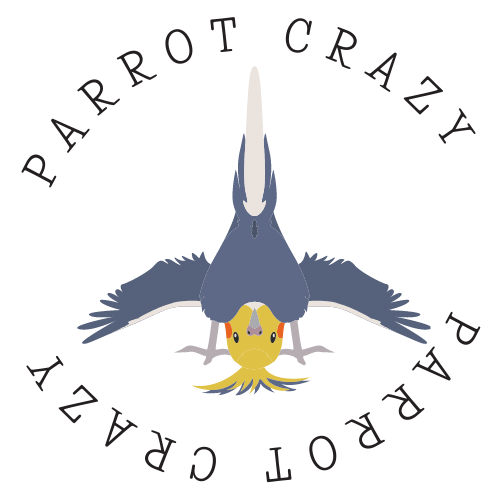Egg-binding is a very serious and often fatal condition that affects female birds of breeding age. Since it’s so important for egg-bound hens to receive prompt medical attention, you should know what signs and symptoms to look for. If left untreated, death can occur. 🙁

What Is Egg-Binding?
Egg-binding is when an egg takes longer than usual to pass. The egg could be too large, soft, has broken or stuck within the reproductive tract. This most commonly occurs in smaller birds but can also affect the bigger bird breeds as well. Egg binding can happen at any time during a birds breeding years.
Symptoms of Egg-Binding in Birds
Recognizing the signs of egg-binding early on is key to your pet’s survival. If you observe any of the following symptoms, contact an avian veterinarian as soon as possible.
- Rapid or labored breathing: Many egg-bound hens look like they are having a hard time breathing. Even slightly labored breathing is a symptom of egg-binding.
- Swelling: An egg-bound hen may appear to have a swollen stomach or show swelling around her bottom from straining to pass an egg. Birds with swelling on any part of their bodies should be seen by a medical professional as soon as possible.
- Constipation: If you suspect that a hen may be egg-bound, watch her droppings. You should assume there’s a problem if they look abnormal or if she fails to produce any at all.
- Fluffed-up feathers: One of the most common symptoms of illness in birds, fluffed-up feathers can also be a sign that a bird is egg-bound. If you observe your bird sitting with her feathers fluffed up, assess her for any other symptoms or abnormalities.
- Straining: Egg-bound hens often visibly strain to try and pass their eggs. Egg-binding should be suspected in birds that strain but show no progress in moving their eggs.
- Sitting on the cage floor: Most of the time, birds that are egg-bound tend to sit on the cage floor. Eggs that are stuck inside of a hen can put immense pressure on the bird’s spine, sometimes causing paralysis and the inability to perch.
- Drooping of the wings: Canaries might exhibit this symptom the most.
- Lameness: This occurs when the egg puts pressure on the nerves going to the legs.
- Loss of appetite: This is a common symptom of several illnesses, but if you notice your bird is not eating, assess it for other signs of egg-binding.
Causes of Egg-Binding
Some may be due to the bird’s age. Other potential causes include an obese hen, a sedentary lifestyle, nutritional issues such as calcium deficiency or low protein diets, stress from the environment, or a malformed egg.
Treatment
A bird suffering from egg-binding should be seen by an avian veterinarian right away. He or she can help determine if the egg is stuck far inside or near the cloaca. It is possible for a bound egg to be massaged out and should be done by a vet. If this doesn’t work then extraction via surgery may be an option to remove the egg. A warm water bath or steam from a shower will sometimes help. This can help relax the muscles, which may help the hen pass the egg on its own.
How to Prevent Egg-Binding
Maintaining a healthy lifestyle for your hen, with proper nutrition, exercise, curbing hormones as much as possible to discourage egg-laying, and plenty of uninterrupted sleep.
If you suspect your pet is sick, call your avian vet immediately. For health-related questions, always consult your veterinarian, as they have examined your pet, know the pet’s health history, and can make the best recommendations for your pet.
Outside sources https://www.thesprucepets.com/signs-of-egg-binding-in-birds-390494
